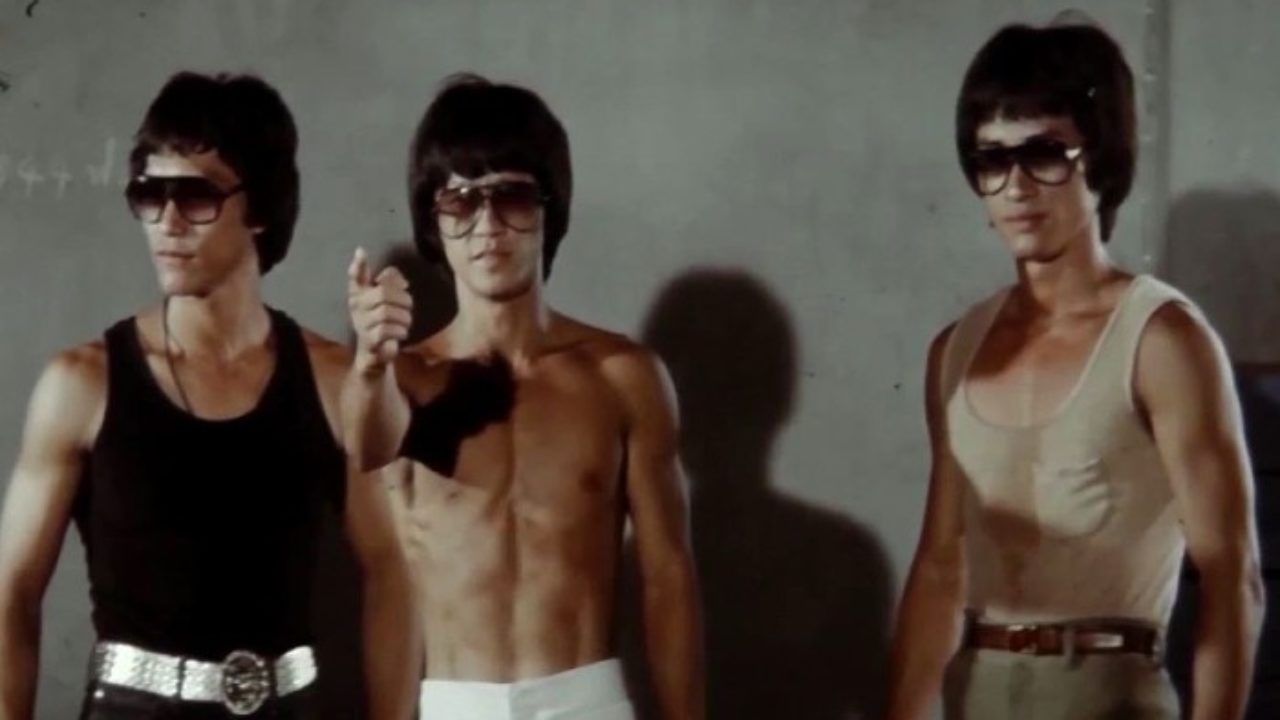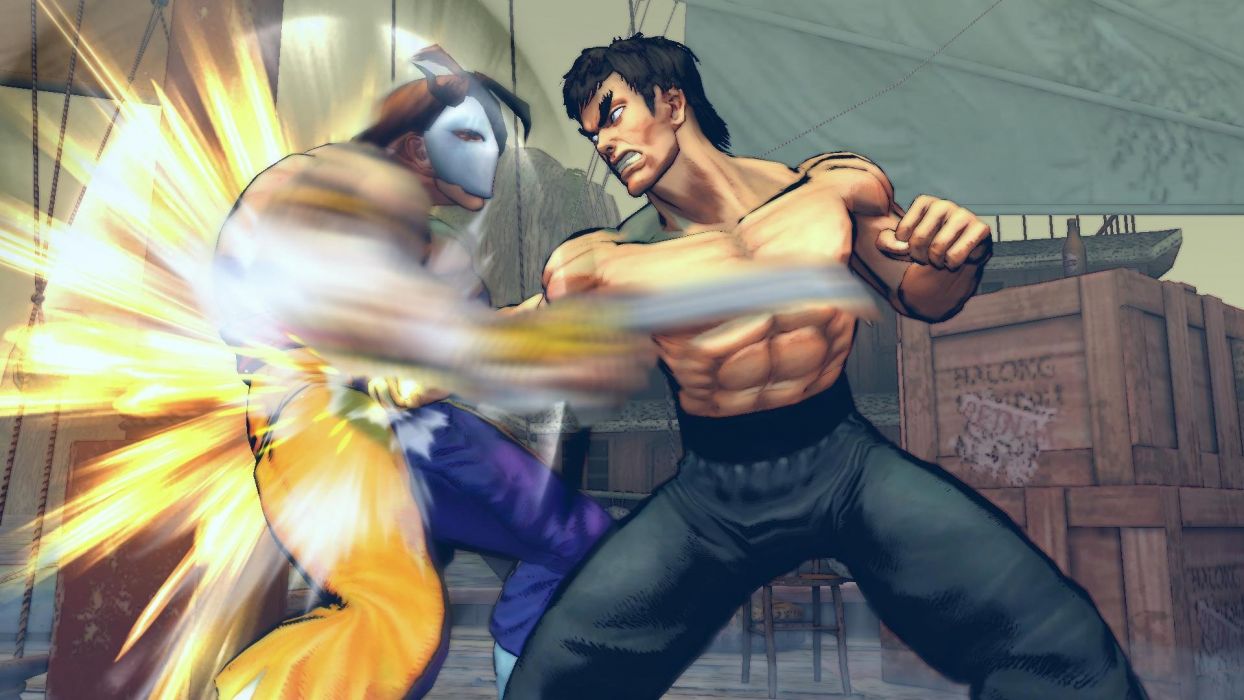Fei Long and The Art of Brucesploitation
The memory and the mythos of Bruce Lee can feel like a religion. And like any prophet, there are men who have tried to emulate Lee’s divinity since the moment he exited this mortal coil.
When I moved this newsletter over to Ghost, a Twitter follower spied the picture of Fei Long on my new homepage and sarcastically asked if there was going to be a lot of Street Fighter content. You might also recognize the character for mean-mugging in my Twitter profiler. The truth is I use Fei Long as an avatar because I have a thing for Bruce Lee proxies—that is, the imitators, clones, and pastiches that in the five decades since Lee’s death have attempted to wield his indomitable kung fu power.
Even if you can’t name any of his movies, you know Bruce Lee. As a cultural icon, his image is up there with Marilyn Monroe, Bob Marley, Che Guevara, Tupac Shakur, and The Wizard of Oz. Remembered with less fondness are the storms of imitators that whipped into Hong Kong cinema after Lee passed away in 1973. “Brucesploitation” is what this very specific sub-genre became known as. Quick bucks were made from a cottage industry of movies starring actors who looked a bit like Lee and with screen names concocted by shuffling a few vowels—Bruce Le, Bruce Li, and Bruce Lai were among the more brazen. You could picture these guys spending hours in front of the mirror, practising Lee’s expressions and characteristics in preparation for movies with titles like Re-Enter the Dragon and Fist of Fury II.
There’s a common narrative that Brucesploitation represented the nadir of martial arts cinema, mercifully banished by the emergence of Jackie Chan as a new kind of kung fu leading man in the late 1970s. This ignores boundary-pushing movies put out by the likes of Shaw Brothers Studio and featuring stars such as Gordon Liu and Lo Lieh that were made during the period. It also denies the fact that some Brucesploitation movies were actually pretty great. Cheap, for sure. Rough as hell, yes. But fun, no doubt. Enter the Game of Death is a solid kung fu movie. In Challenge of the Tiger, Bruce Le fights a bull. The Clones of Bruce Lee is about a mad scientist who extracts the DNA of the real man after he dies so he can be cloned into secret agents. Casting an array of Brucesploitation stars, it’s the Alien vs. Predator of the genre. Everyone seemed to have fun.

Thing is, when you swim in Brucesploitation for long enough, the real thing starts to feel more mythical, more awe-inspiring, damn-near supernatural. Watching clones affirms that Lee’s screen presence and physicality were impossible to match. Simply put, he was a true original.
(It’s past time someone came through with a new Brucesploitation flick in the same way Black Dynamite paid homage to Blaxploitation. Get a Lee lookalike—or three—and make a movie that’s light-hearted, fun, and that kicks much ass. There’s space for a modern love letter to the genre.)
Brucesploitation has not been limited to low budget cinema. As long as there have been beat ‘em up video games, designers have sought to grant players control of the legend. You can go all the way back to 1984 and the Atari game Bruce Lee, which featured a tiny pixilated depiction of Lee you could move from platform to platform.
Little details like image rights have not stopped gaming companies. They bypassed any such issues by inventing their own Lee stand-ins. The most famous has got to be Liu Kang, flagship star of the Mortal Kombat series since it first hit arcades like an uppercut in 1992. The original vision of Liu Kang resembled Lee and replicated his hallmark high-pitched yells. But the character was always a half-in, half-out depiction, a result of a creative history that saw him start out as a bald monk in robes before being radically redesigned. By the time Mortal Kombat II came along, Liu Kang’s hair had grown out as he evolved into the more distinct entity that he is today. Watch the recently released Mortal Kombat movie and it’s difficult to detect any of Lee’s genetics in the character.

Fei Long is different. First appearing in Super Street Fighter II (1993), here we had a Bruce Lee stand-in as unashamed as his Brucesploitation clones. Fei Long looked just like Lee. He was given the backstory of a Hong Kong movie star who fights to defend his legitimacy. His style resembled Lee’s Jeet Kune Do, even the stance was bang on. The game wasn’t hiding its intent: it wanted to allow players to brawl with its roster as Bruce Lee.
For me, Brucesploitation is videogames peaked with Forest Law in Tekken 3 (1997). Building on the design of the character’s father Marshall Law in the first two editions of the game, Forest Law had every iconic Lee move in his arsenal. You could do the kicks, the body blows, the one-inch punch. You could wear versions of Lee’s yellow and black jumpsuit, his white tank top, and buttoned-up shirt with the prominent cuffs. (Lei Wulong was similarly based on Jackie Chan and his Super Cop persona.) I’ve just as much fondness for Forest Law as his Street Fighter equivalent.
There’s one thing Fei Long does that Bruce Lee never did, though: lose. He is, after all, a supporting character in the Street Fighter universe and those guys get beaten. Take Street Fighter II: The Animated Movie, from 1994: Fei Long challenges protagonist Ryu and in good time gets battered. (If you’re looking for weird ripples to his history, Fei Long is voiced in the movie by Bryan Cranston.)
So Fei Long is the underdog, a tomato can to be knocked down, not at all like Ryu or Ken or Guile or any of the other big-ticket characters. Screenwriters couldn’t even find room for him in live action adaptation of Street Fighter starring Jean-Claude Van Damme. Unlike the superstar who inspired him, Fei Long is a cult favorite, hero to the lesser-fancied. Perhaps that’s why he attracted the affection of rapper Sean Price. Like Bruce Lee, Price was a master of his craft, yet one who never got all due respect. Released shortly after his death in 2015, the track “Fei Long” evokes the spirit of the character as Sean P lashes out at an unnamed opponent: “You make songs with Trey Songz/ Fuckin’ liar, kick fire out you, I’m Fei Long.”
Me, I like using Fei Long’s image because he leans on the Bruce Lee iconography that I love while still feeling like an alternative hero and weird cultural artefact. It’s classic imagery that unlike its inspiration doesn’t appear on 100,000 posters hung on dojo walls and college dorm rooms. Emulation at its most loving and inspired.
Thanks for reading this one. Paid subs can catch up on last week’s Snoop Dogg review here. Not a paid sub? Why not remedy that right now and ensure you miss absolutely nothing. And check out the Sean Price playlist I put together last year.